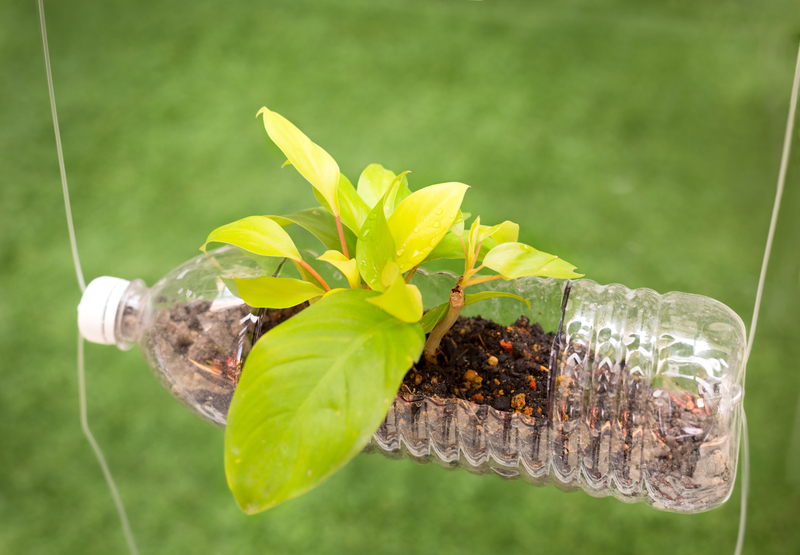
Discover the Environmental Impact of Recycling Metals
In today's rapidly advancing world, sustainability and environmental consciousness are more important than ever. One of the pivotal components of sustainable practices is recycling metals. This article explores the significant environmental impact of metal recycling, providing insights into why it's a crucial practice for our planet's health.
Understanding Metal Recycling
Metal recycling involves reprocessing used metals to produce new products. This process helps in conserving natural resources, reducing energy consumption, minimizing waste, and decreasing pollution. The industrial sector largely focuses on recycling metals like aluminum, steel, copper, and precious metals.
The Advantages of Recycling Metals
Recycling metals offers a variety of benefits that positively impact the environment. Here, we delve into these advantages:
1. Conservation of Natural Resources
One of the strongest reasons for recycling metals is that it conserves natural resources. Extracting metals from earth requires extensive mining activities, which can lead to landscape destruction and depletion of minerals. By recycling metals, we reduce the demand for new raw materials, ensuring that natural resources are preserved for future generations.
2. Energy Savings
Recycling metals is highly energy-efficient compared to extracting raw materials from ores. For example, recycling aluminum saves up to 95% of the energy needed to produce it from bauxite ore. This energy conservation leads to a substantial decrease in greenhouse gas emissions, impacting climate change mitigation efforts positively.
3. Reduction of Landfill Usage
A considerable environmental problem is the overflow of landfill sites. Metals occupy a significant amount of space within these areas. By recycling, we substantially reduce the volume of waste in landfills. This conservation of space also helps in reducing the contamination of soil and groundwater by metal pollutants.
4. Pollution Mitigation
Metal recycling significantly reduces pollution. Mining and refining raw metals release pollutants into the air and water, contributing to environmental degradation. Through recycling, the release of harmful emissions and effluents is minimized, leading to cleaner air and water quality.
The Recycling Process: How Does It Work?
The process of recycling metals involves several stages:
- Collection and Sorting: Metals are collected from various sources, including industrial sites and households. They are then sorted based on type and quality.
- Processing: Metals are crushed and shredded to smaller sizes, making them easy to handle and process.
- Melting: The shredded metals are melted in large furnaces. The type of metal determines the temperature required.
- Purification: The melted metals are purified to remove impurities, often through electrolysis or powerful magnets.
- Solidification: Once purified, the metal is poured into molds to form ingots. These ingots are then used to manufacture new products.
Challenges in Metal Recycling
Despite the benefits, recycling metals is not without its challenges:
1. Complexity of Metal Types
Different metals require specific recycling methods, and separating these for optimal recycling can be complicated. Mixing metals can decrease the quality of recycled products.
2. Recycling Rates
The rate at which metals are recycled often depends on the metal's market value and the feasibility of recycling it profitably. Metals like aluminum have high recycling rates due to their demand and efficiency, while others like rare earth metals pose challenges.
3. Technological Barriers
Current recycling technologies may not be sufficient to cater to all types of metals, particularly newer alloys and composites. Innovation and investment in recycling technology are necessary to improve efficiency and accommodate a broader range of metals.
Global Impact of Metal Recycling
Metal recycling is a worldwide industry with impacts transcending national borders. Strategic recycling efforts can lead to:
1. Lower Dependence on ImportsCountries reliant on imported raw materials for metal production can reduce their dependence through recycling, paving the way for enhanced economic stability and reduced geopolitical tensions.
2. Employment OpportunitiesThe metal recycling industry creates jobs across various sectors, from collection to processing and marketing recycled materials. This enhances local economies and supports sustainable economic growth.
3. Circular Economy PromotionRecycling metals is fundamental to establishing a circular economy where resources are reused and regenerated, promoting sustainable practices across industries.
Conclusion: The Path Forward
The environmental impact of recycling metals is profound and offers numerous benefits that contribute to a healthier planet. As awareness continues to grow, it's important for individuals, companies, and governments to prioritize recycling efforts. By supporting and investing in innovative technologies and robust recycling programs, we can move towards a future where resource efficiency and environmental stewardship go hand in hand. Through intentional actions today, we can ensure a better and more sustainable tomorrow.
